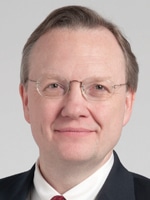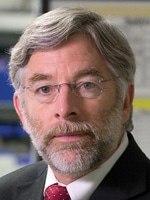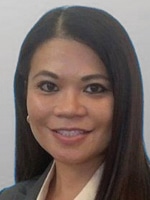March 2023—All in on staff retention and solving staff shortages, some made worse temporarily by weather. That’s where laboratories were when Compass Group members told CAP TODAY publisher Bob McGonnagle in their Feb. 7 call where hospitals and labs were aiming their efforts. From safety huddles and stay interviews to arranging for overnight stays and incentives, the work to remain sufficiently staffed continues.
The Compass Group is an organization of not-for-profit IDN system laboratory leaders who collaborate to identify and share best practices and strategies.
Eric Carbonneau, where is TriCore’s focus at this time early in the year?
Eric Carbonneau, MS, MLS(ASCP), chief operating officer, TriCore Reference Laboratories, Albuquerque: TriCore is focusing this year on staffing, thinking of new ways to recruit staff, getting new laboratorians into the field. With our different deployments—we talked in the past about our mobile units going out and doing COVID collections—we’re focusing on how we can make our physician partners’ and patients’ lives easier.

Dr. Henricks
Wally Henricks, what is top of mind for you in your department?
Walter Henricks, MD, vice chair, Pathology and Laboratory Medicine Institute, and laboratory director, Cleveland Clinic: We’re beginning to finalize and implement our priorities; we go through an OKR [objectives and key results] process. Even more of a focus this year for the organization are serious safety events and how they apply in the laboratory. Our institution is further expanding our use of the Cleveland Clinic Improvement Model for continuous improvement. We’re finding new ways to apply that in our department. Across our laboratories we’re doubling down on waste reduction in service of efficiency and cost savings as a first priority.
Another priority is employee recruitment and retention. Working with human resources, we’re offering new, aggressive retention packages and implementing stay interviews, where we interview people about what’s working well and what’s not at all levels. Let’s not hear what’s going wrong only after someone leaves; let’s see if it might be correctable. We’re using employee engagement surveys too.
As you all have reported to us, the nursing shortage directly affects phlebotomists and phlebotomy service and specimen collection. Are you seeing an impact there at the Clinic?
Dr. Henricks (Cleveland Clinic): Yes. Determining where and when inpatient phlebotomy is covered by nurses versus lab phlebotomy service is more of a problem because of shortages in both groups. That can lead to some new tensions, but we’re working through it. Our smaller hospitals tend to have less room to flex. Lab phlebotomy does not draw in ICUs, nurses do, so we don’t have acute pressure there.
John Waugh, give us a comment on the staffing shortage at Henry Ford.
John Waugh, MS, MLS(ASCP), system VP, pathology and laboratory medicine, Henry Ford Health System, Detroit: Staffing shortages in nursing are the most precarious because surgical cases can’t go and patients can’t be moved quickly out of the ED and into inpatient units.
One strategy being used is stay interviews, as Wally mentioned. There is an effort to look purposefully at onboarding to further reduce turnover trends that are still seen. There are multiple check-in meetings throughout so people can feel a better sense of belonging and build trust with their new leader, which we hope will improve retention and engagement.

Waugh
A friend who ran a laboratory used to tell me it takes at least two years for a medical laboratory scientist to begin to contribute in a significant way in a clinical laboratory. They come in well trained but there’s a lot to learn. Do you have a time frame for when people begin to optimally produce results?
John Waugh (Henry Ford): People get thrown in the deep end much quicker these days, and two years is probably long. People have a greater ability to cross-train. There are more workstations, there is more complexity. People walk from four or five instruments, all of which have different middleware, different interfaces, in one shift. From the instrument user standpoint, they are complex and the middleware is a rules engine that keeps track of hundreds of scenarios. It would be like asking travel agents to keep airline schedules in their head. We rely incredibly on middleware in chemistry, hematology, immunochemistry, and microbiology. People are in the deep end faster and in two years they’re going to be rock stars.

Wong
Dhobie Wong, tell us what Sutter is focusing on this year.
Dhobie Wong, MBA, MLS(ASCP), CLS, VP of laboratory services, Sutter Health, Sacramento, Calif.: Our focus for this year is looking at ways to grow. An imperative from our new CEO is growth and access. With that we anticipate laboratory volume to grow as well.
We’re also contending with staffing challenges and trying to think outside the box. We have a training program for medical laboratory scientists and medical laboratory technicians. One approach we’re looking at is doing a skills mix optimization, where for positions that traditionally would be MLSs or clinical laboratory scientists, we would incorporate MLTs into areas such as core lab, chemistry, hematology, and blood bank.
Another approach we’re exploring is creating a pool to draw from for CLSs, phlebotomists, and laboratory assistants. Historically each hospital would have its own staffing pool, so we’re looking to create a regional staffing pool to draw from. We’re also looking at our outpatient and inpatient; we have silos where we don’t intermingle with acute and foundation settings, so we’re trying to break down those barriers to see if we can create pools of staff that we can share wherever the need is between those areas.
Tony Bull, tell us about staffing at MUSC.
Tony Bull, system administrative officer, Pathology and Laboratory Medicine Integrated Center of Clinical Excellence, Medical University of South Carolina: It’s severe. We’re feeling it the most with cytotechnologists, histotechnologists, phlebotomists. The past two days our morning rounds have been completed later than I would like to admit. The goal is to have them done by 6 or 7 am. Our cytotechnologist team is holding it together but they are working so hard. They’re in on weekends to stay caught up. We don’t have enough of them to be able to meet all service demands, and it continues to be a concern.
We are excited about an apprenticeship program we’re doing with a technical college in town. We have a job category for four-year science graduates who want to work in the laboratory. Through a state grant with the local technical college, we are offering classes and on-the-job experience for those employees. It’s no cost to them and they will be able to get licensed in a couple years. We have 10 students enrolled. But there’s no light at the end of the staffing tunnel yet.
Milt Datta, can you share the news from Minneapolis?
Milton Datta, MD, chair of pathology, Abbott Northwestern Hospital, Allina Health, Minneapolis: The threat of a nursing strike going into the end of December pushed everybody to the negotiation table. The bottom line is it allowed us to get things done and all sides to walk away with a contract with our nurses that made everybody feel good. It’s been a huge bonus for us to be able to move forward with this and keep building.
 CAP TODAY Pathology/Laboratory Medicine/Laboratory Management
CAP TODAY Pathology/Laboratory Medicine/Laboratory Management
